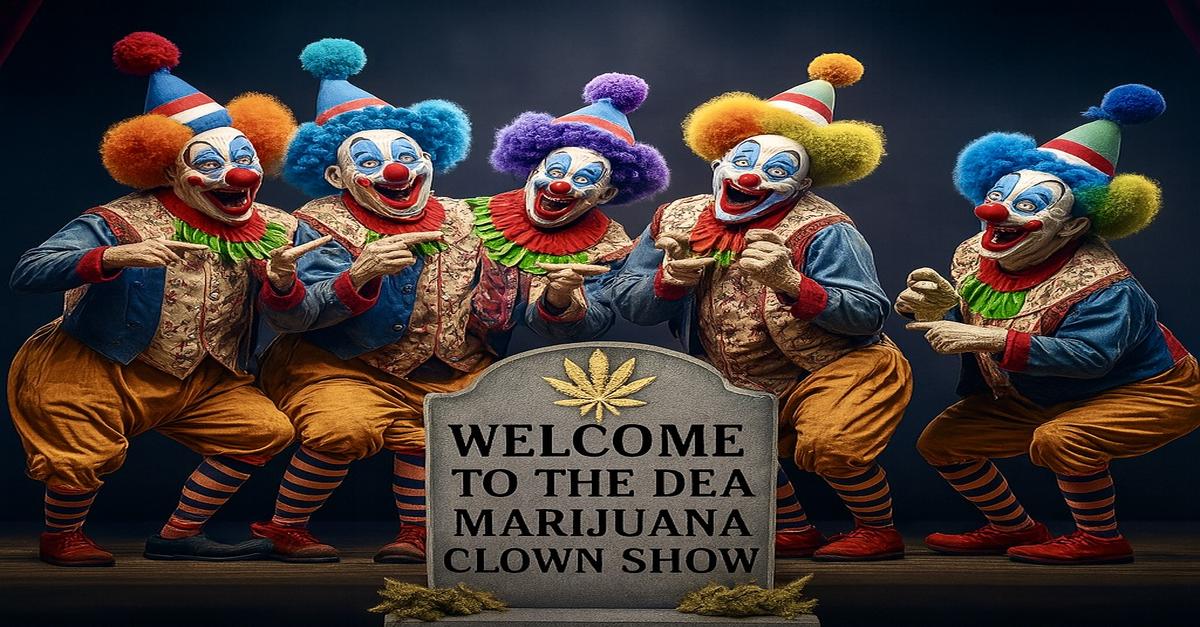Is the DEA the Epitome of Ineptitude?
"Why is the VA importing cannabis that U.S. companies have been ready to produce for years? If American cannabis is 'too dangerous' for research, why is foreign cannabis treatment suddenly acceptable for our veterans?" asked Duane Boise, CEO of MMJ International Holdings.
WASHINGTON, DC / ACCESS Newswire / September 8, 2025 / In a stunning regulatory paradox, the U.S. Department of Veterans Affairs (VA) has applied for DEA approval to import marijuana extracts from abroad to study PTSD and chronic pain in veterans. While this step may help veterans, it underscores a catastrophic policy failure: the DEA has systematically blocked American companies from producing the very same research materials, forcing the federal government itself to look overseas.

This is not about American capability. MMJ BioPharma Cultivation, Inc., a fully compliant U.S. pharmaceutical company, has been trapped in a seven-year regulatory nightmare attempting to cultivate cannabis for FDA-approved clinical trials in Huntington's disease and Multiple Sclerosis. Despite passing inspections, receiving one schedule 1 lab registration and holding FDA Orphan Drug Designations, MMJ remains sidelined-will the VA application move forward quickly?
The Core Contradiction
The paradox is easy to grasp:
It's as if the government banned American farmers from growing oranges, then turned around and announced it needed to import oranges from overseas to study vitamin C deficiency in veterans-while ignoring American farmers who already had the seeds, land, and expertise to grow.
Key Points the Public Should Know
DEA Is Picking Winners and Losers-And Patients Are Losing.
The VA's application will show how quickly the DEA can act when it wants to. Its simultaneous 2,400-day delay of MMJ's application is a choice, not an accident.The "Safety" Excuse Is Hollow.
By blocking regulated domestic API Bulk Manufactures, the DEA is forcing reliance on international supply chains. The safest, most secure supply would come from a DEA licensed American facility like MMJ.Veterans and Neurological Patients Should Not Have to Compete.
DEA's obstruction pits vulnerable groups against each other. Veterans deserve access to cannabis-based therapies-but so do Huntington's and Multiple Sclerosis patients. This is not an either/or.A Waste of American Innovation and Taxpayer Resources.
MMJ has already invested millions into the compliant process. FDA granted MMJ Orphan Drug status for potential therapies, while DEA has blocked the company from planting a single seed.Defying Congress and the Law.
The Medical Marijuana and Cannabidiol Research Expansion Act (2022) required DEA to expedite research applications. Three years later, DEA's refusal to comply exposes bureaucratic inertia and disregard for congressional mandates.
The Bigger Question
The issue isn't whether the VA should conduct cannabis research. It should.
The real question is: Why has DEA made it impossible for this research to come from U.S. companies, using U.S. grown cannabis, for the benefit of U.S. patients?
The fact that the VA must import cannabis is a direct indictment of DEA's failed approach to regulating research. Americans deserve a system that prioritizes national security, scientific progress, and patient care-not bureaucratic obstruction.
It's time for DEA to stop being the problem and start being part of the solution.
MMJ is represented by attorney Megan Sheehan.
CONTACT:
Madison Hisey
MHisey@mmjih.com
203-231-85832
SOURCE: MMJ International Holdings
View the original press release on ACCESS Newswire:
https://www.accessnewswire.com/newsroom/en/healthcare-and-pharmaceutical/dea-national-marijuana-embarrassment-dea-forces-va-to-import-cannabis-1069896
